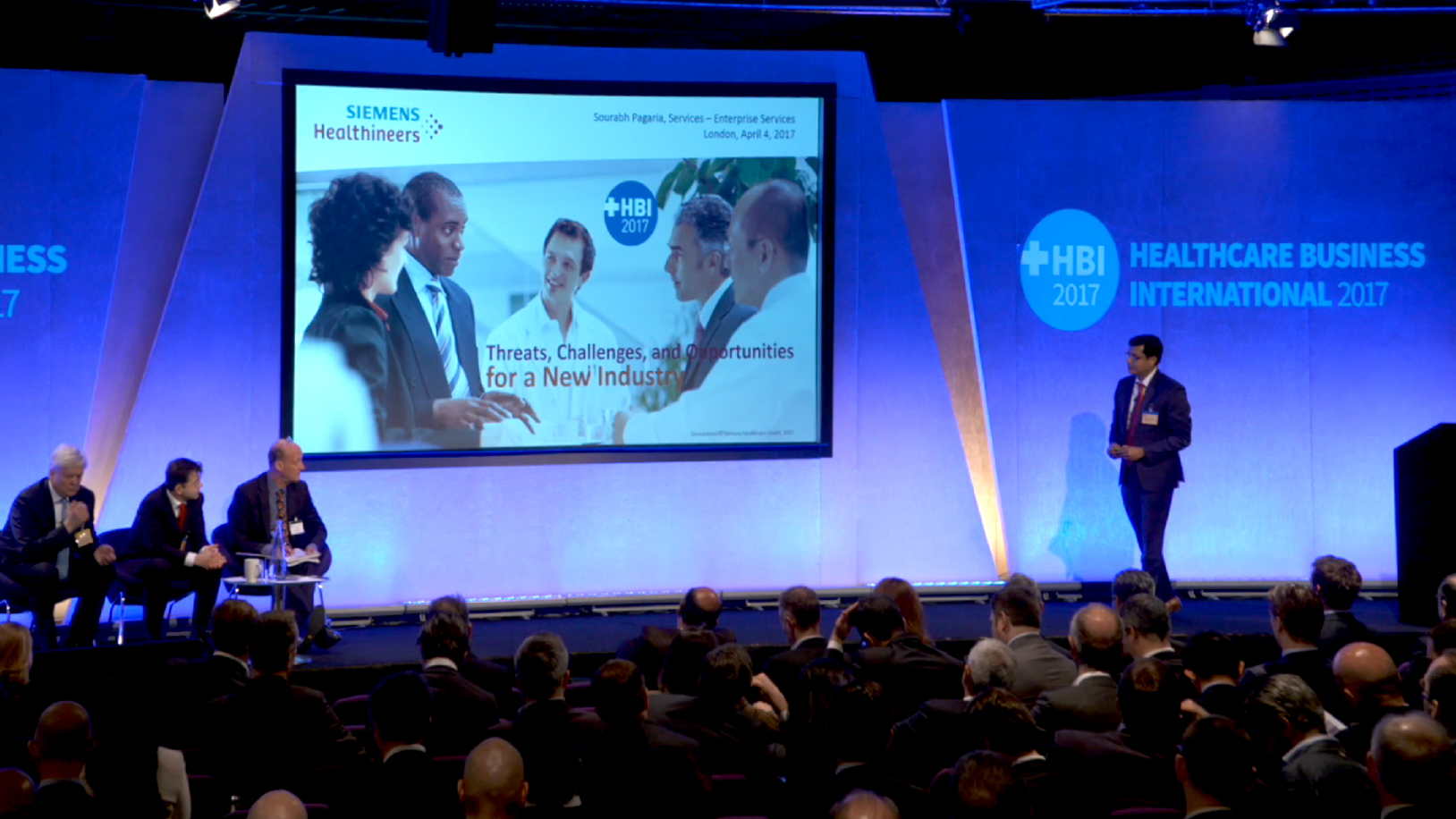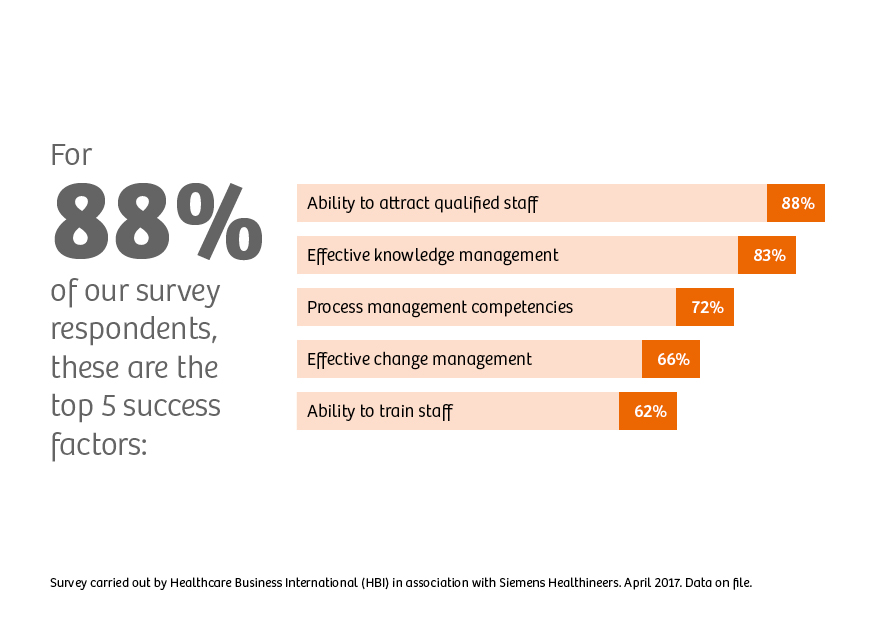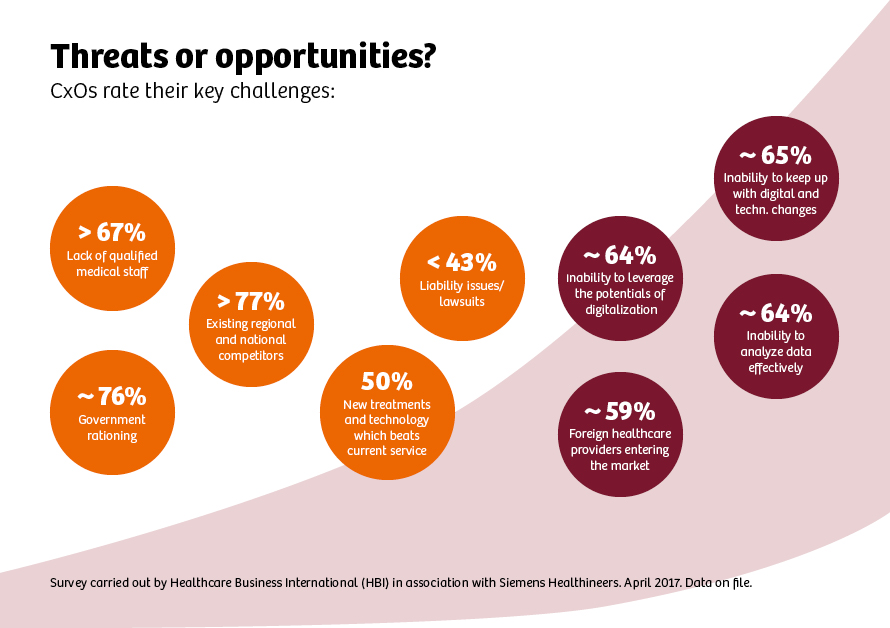
I recently had the honor of giving the key note speech at the Healthcare Business International Conference 2017, where 570 healthcare industry CEOs from 50 countries gathered to share their perspectives on what to expect in healthcare over the next few years. These were executives, from both mature and emerging markets, whose success depends on their ability to anticipate trends and be right about them.
It
was a good chance to see just how well these particular decision-makers’
visions of the future synched with each other and their colleagues around the
world. So, along with HBI, we commissioned a global leadership survey*—asking over 95 healthcare
executives to identify the top factors they see as necessary for their business
to succeed going forward. I would like to share with you seven key
learnings that I personally take away from the survey:
1. Despite all the challenges, executives are
aggressively optimistic about growth prospects

In fact, they see the challenges as opportunities. And they expect to grow faster than the overall market. In emerging markets, 70% expected their company to grow faster than the overall market growth. In mature markets the number was even higher—86% felt well-positioned to outpace their markets. That means ramped up competition. When everyone is looking to beat what the market can organically feed them things are bound to get exciting.
2. M&A will play a major role in driving
growth
Both nationally and internationally, mergers and acquisitions will be a key driver of growth. In emerging markets, in fact, it will be the primary driver of growth, outpacing organic growth 55% to 45%. Personally, I believe, in the next 5 years we will see international operators acquiring smaller, tier 2 assets in emerging markets to establish a “home base” for tapping into growth opportunities. On the other hand, there will be clear “winners” & “losers” emerging in the consolidation game in the mature markets, especially in Western Europe & in the USA.
3. A bigger role for private medical insurers
in emerging markets
While governmental regulations limit change in mature markets (where private medical insurers will increase slightly) emerging markets are a different story. Private medical insurance, in that sector, is expected to increase from 18% of the market now to 27% by 2022. That means more negotiating power for them—and a need for healthcare providers to find effective ways of collaborating with them.
4. You’re only as good as your staff
Almost 9 out of 10 executives agree: the ability to attract qualified staff will be the #1 requirement for success in the coming years. This would require healthcare providers to leverage technologies which can help with knowledge management and virtualization of skills and experience. Partnerships with key suppliers (e.g., MedTech) can help providers address this challenge effectively.

5. New threats are emerging, and new
opportunities as well
Traditional threats to growth—existing regional and national competitors, government rationing, etc.—are now being supplanted by new challenges caused by healthcare market dynamics. The inability to leverage the potential of digitalization, foreign healthcare providers entering local markets, and a lack of ability to analyze data effectively top the list of threats among our survey’s respondents.

6. Patient-centricity
It’s no surprise that our respondents almost unanimously agree that strategic imperatives for growth must be founded on patient-centricity across the board. From how to provide more efficient service, to establishing mind share and brand recognition in an age of social media, to making sure to be where the patients are, the healthcare success stories of the five next years will likely be examples of healthcare providers skilled at creating a “brand” that says we truly care about patients—and delivers on the promise.
7. Leveraging partnerships to focus on core
competencies – patient care
Global dynamics in healthcare—demographic trends, consumerism, data analytics and the shift to value-based reimbursement among them—are making healthcare execs wary about being pulled away from their core competencies.
More
and more healthcare executives are looking to form partnerships and alliances
with technology companies to help them leverage technology to meet their triple
aim: Ensuring population health, better experience of care at lower costs, and
patient centricity.
Want to know how you
compare? Find it out by taking the
survey yourself!
Here’s the link: siemens.com/exec-survey. See how well your vision of the healthcare near future syncs with the leaders in the field. Once you’re done, Siemens Healthineers will send you a customized report where you can benchmark your answers.
*Survey carried out by Healthcare Business International (HBI) in association with Siemens Healthineers. April 2017. Data on file.
Sourabh Pagaria, Senior Vice President and General Manager, Enterprise Services & Solutions, Siemens Healthineers

























